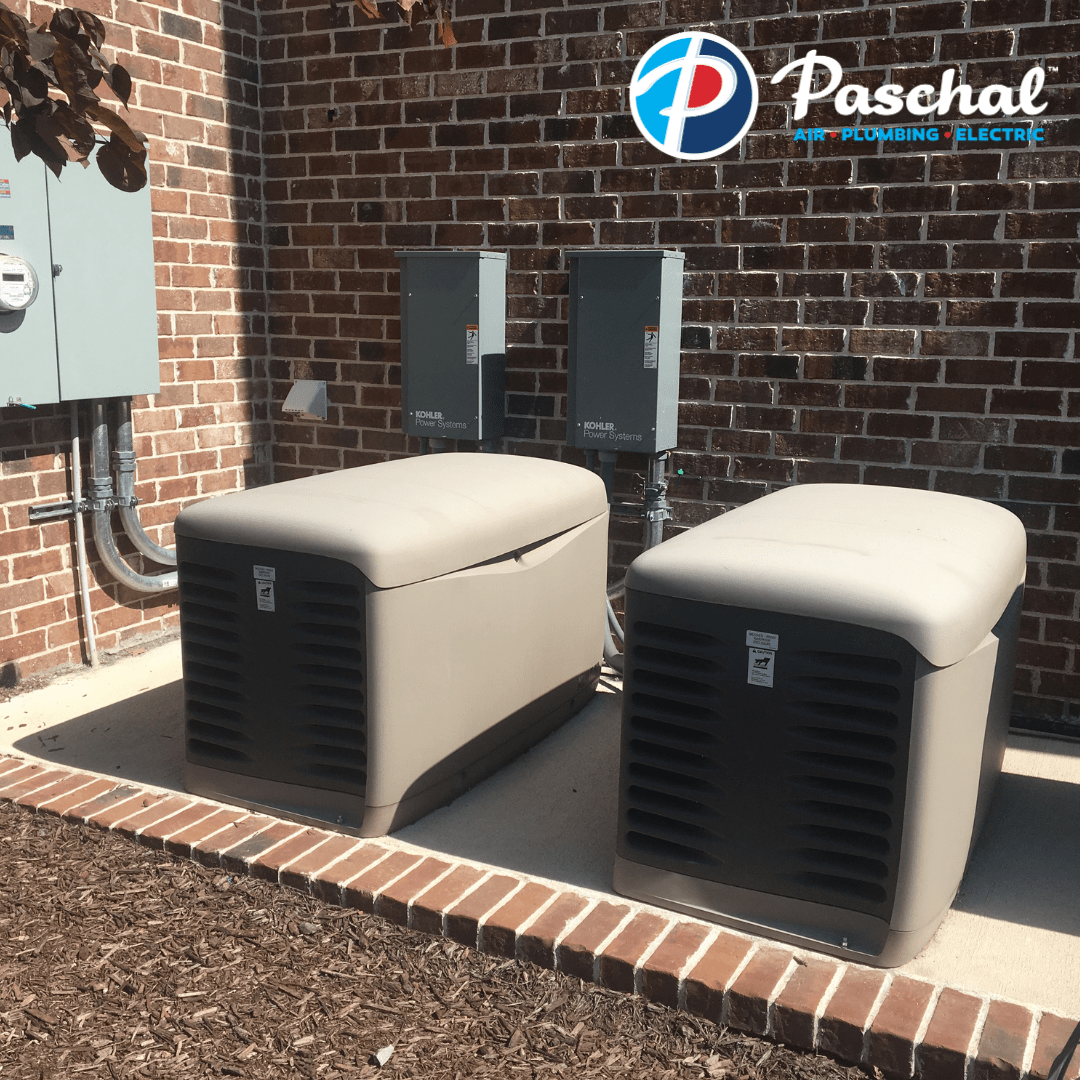Want to save with Paschal? Don’t miss our current offers and specials

Want to save with Paschal? Don’t miss our current offers and specials
Return to Paschal Resource & Education Hub

Nobody gets excited to lose power in their home—except maybe neighborhood kids who get to play flashlight tag for an hour or two. As for the rest of us? A power outage is a massive inconvenience, at best. No heat or air conditioning, no light, spoiled food, no wi-fi for how long?!
One way to combat losing power is to purchase a generator. Generators come in all shapes, sizes, and price points. It’s important to know what kind you need, which mostly comes down to the size measured in watts (W).
Having the right size generator means having sufficient wattage to power all your desired devices and appliances in the event of a power outage. But choosing the right size generator can also help you:
Unfortunately, like most things, choosing a generator depends on a number of factors. To pick the right generator for your home, consider the following:
The first way to choose the right size generator is to figure out how often you’ll use it.
When you say, “How big of a generator do I need to run my house?” Do you mean your whole house? In other words, the most common and effective way to choose your generator size is to decide what you need to power.
Most of us don’t have unlimited cash to spend on a generator, right? So, consider your budget and wattage needs together to find the best middle-ground.
Generators that can power your whole home, like a standby generator, can cost up to $10,000 with installation. But that price tag comes with a lot of benefits: automatic start when your regular power source fails, 24/7 protection, and the ability to power your entire home and then some!
For most people, a mid-sized or large inverter typically does the trick. These range from handling 3,500W to 7,500W, which is enough to power the most common appliances in your home like the refrigerator, HVAC, TV, and some lights.
For the occasional to rare outage folks, plan to spend around $1,500 with installation.
Any generator that requires a transfer switch needs to be installed by a licensed Northwest Arkansas, Fort Smith & Southwest Missouri electrician. A transfer switch is a small unit that attaches your generator to your circuit breaker with a single cable. It’s safer, more convenient, and more reliable than using extension cords.
But no matter what kind of generator you’re looking for, we can help! Let us handle your recommendation, installation, and maintenance needs. Call us today.